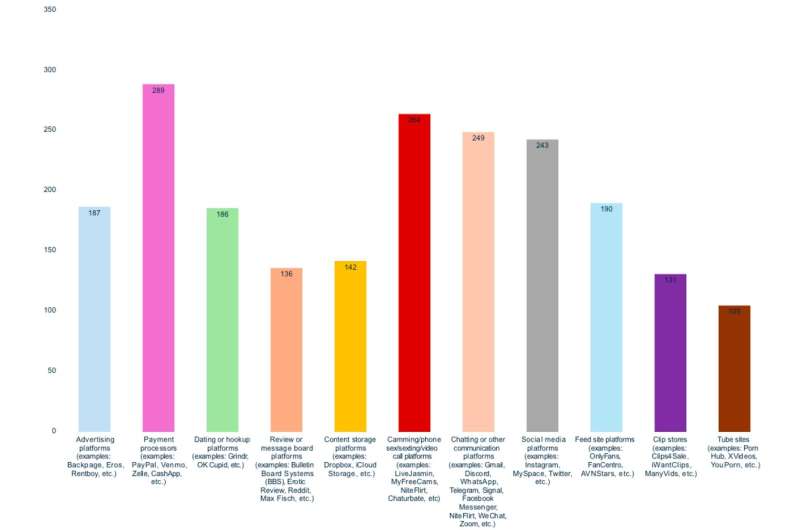This article has been reviewed according to Science X's editorial process and policies. Editors have highlighted the following attributes while ensuring the content's credibility:
fact-checked
trusted source
proofread
Deplatforming puts sex workers at risk, study says

A study published in Social Sciences by CUNY SPH alumna Melissa Ditmore and team suggests that laws criminalizing sex work don't prevent human trafficking and leave sex workers vulnerable to coercion and unsafe conditions.
In a national survey developed in partnership with sex workers across the U.S., Dr. Ditmore and colleagues found that sex workers use a range of online platforms. However, due to recent laws banning the promotion of prostitution, platforms often remove and/or limit sex workers' access, thereby restricting their ability to earn income and compromising their safety.
Sex workers have long pioneered the use of online platforms for advertising, providing services, screening clients, collecting payments, and peer-interaction, among other activities.
In response to laws like the Stop Enabling Sex Traffickers Act (SESTA) and the Fight Online Sex Trafficking Act (FOSTA), which allow law enforcement to prosecute online providers perceived to be promoting sex work, a number of platforms developed policies to avoid prosecution.
Research shows this has compromised sex workers' capacities to live and work safely. Without a platform to advertise and screen clients, for example, the sex worker may be forced to engage in riskier behavior such as seeking clients in public spaces and accepting riskier interactions.
These laws don't impact all sex workers equally, the authors say. Their effects stratify along the lines of race, gender, and ability.
"We found that income loss and safety loss are more likely for non-white/gender-expansive/disabled de-platformed sex workers than they are for white/cis/non-disabled sex workers," says Dr. Ditmore.
Among sex workers, scholars, and advocates, there is an ever-growing consensus that laws like SESTA/FOSTA do little to help sex workers live and work safely, the authors say. This study furthers arguments in favor of repealing such laws.
More information: Samantha Majic et al, Sex Workers Cannot Be Wrong: Engaging and Negotiating Online Platform Power, Social Sciences (2024). DOI: 10.3390/socsci13070337. doi.org/10.3390/socsci13070337
Provided by The City University of New York




















